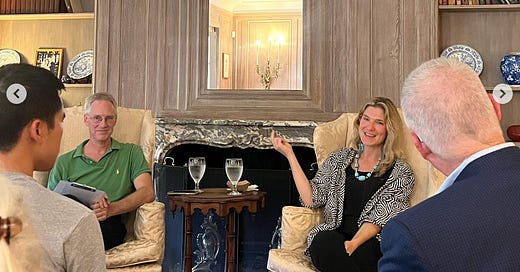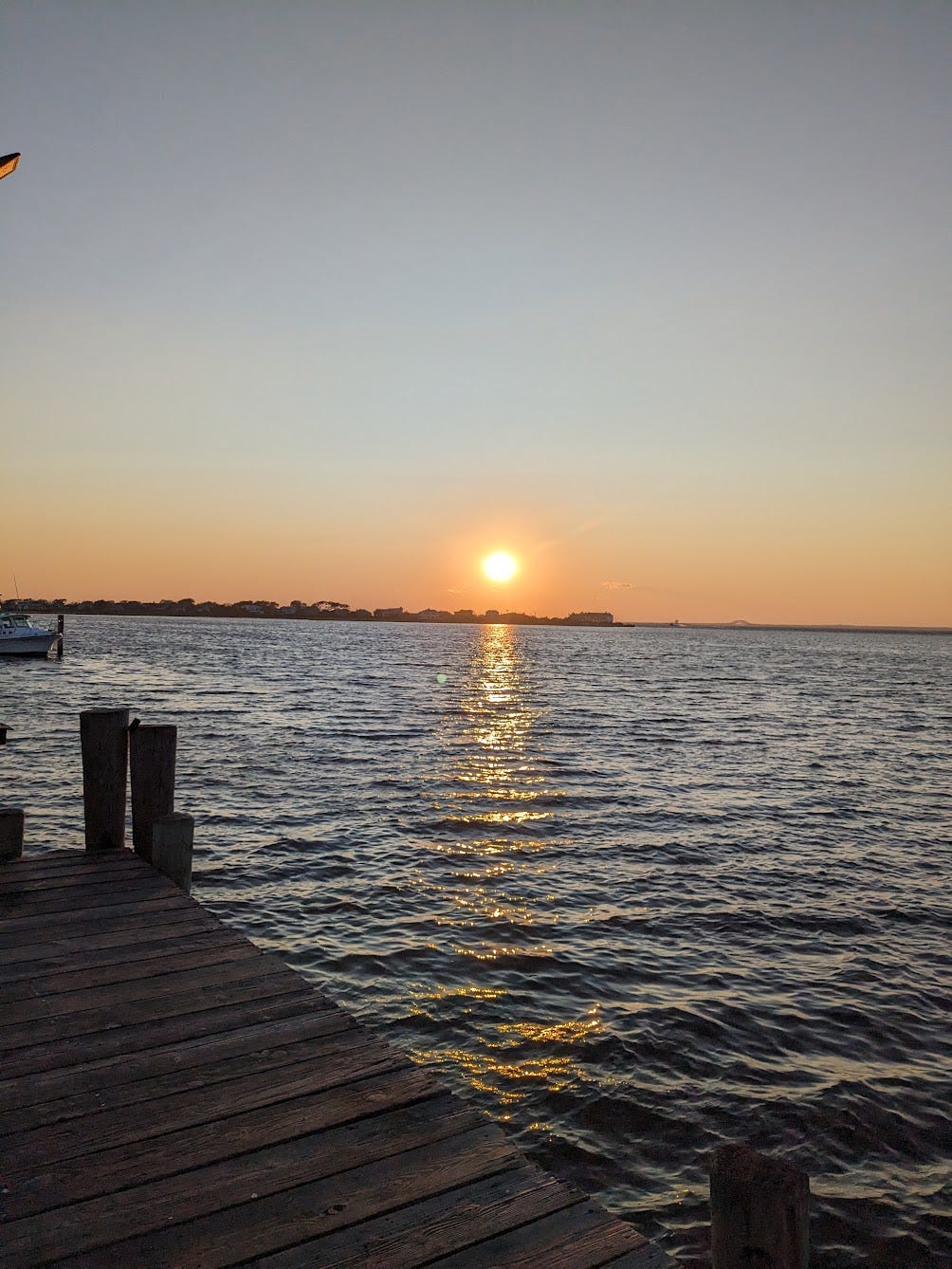
As an undergraduate, I took quite a few psychology classes. I even worked one semester as a research assistant in a psychology lab, and for awhile I considered trying to combine my interests in literature and psychology into a double major.
However, I don’t remember learning much as a college student that was applicable to understanding my own emotions. And those four years were extremely emotional! I dealt with living far away from my family and becoming more independent; I dated, and fell in love with my now-husband; traveled to Moscow to study and felt incredibly sad and lonely there; negotiated friendships and questions of identity, achievement and status, who I was and who I hoped to be. I tried to help friends with mental health crises, coming out, sexual assaults and substance abuse issues. I had successes and failures; felt big and less-than, included and left out.
I never went to see any counselor or therapist during that time, although I did stay involved with the Hillel, and that was a grounding, welcoming place. I knew, vaguely, that mental health services were available, but they seemed reserved for people having “real” breakdowns; that wasn’t as normalized as it is now. I loved reading and writing and lived a lot in my head, which got to be a very comfortable place—and that also accorded with what was expected of me, to be a good student.
I’ve been invited back to Yale a few times to talk about my work, and it’s been a huge honor each time. But the visit this past Monday was special. I’ve changed directions in my career since mid-2022 to focus on the intersection between climate change and well-being, especially children’s and young people’s well-being on this changing planet. And internally, I’ve made another pivot: to try to lead with my heart, not with my head as has always been the most comfortable for me.
So I talked about how climate emotions stalked me for years, from my first hurricane, Andrew, in 1992, through Katrina in 2005 and Sandy in 2012; how they found me on sleepless nights, and while I was with my babies, until one day I took a deep breath and decided to face the monsters under the bed.
I talked about how I found the researchers, like Maria Ojala and Britt Wray and Eric Lewandowski and Caroline Hickman and Panu Pikhala , who are helping us understand what’s going on; and the writers like Mary Annaïse Heglar and Kim Stanley Robinson who help us feel it and imagine it. And in particular Joanna Macy, whose work, I think, is just at the beginning of changing my life.
I told the students not to be afraid of the bad climate feelings, and never to keep them to themselves. Anger, it turns out, might be the most useful climate emotion, at least for its power to move us to action. And hope might come from action, not the other way around; don’t wait.
And in the Q&A and later at the reception at the Head of College’s house, I answered the two questions that everybody seems to have:
Q. What should I personally be doing to stop the climate crisis? Where can I plug in? What’s most important?
A. It’s all important! As long as it’s about getting off fossil fuels, reducing carbon, and/or restoring ecosystems. There are talents, skills, assets, you already have, a community you’re already connected to, a cause or a place you care deeply about. Start there.
You work in preschools? Decarbonize the preschools. You practice zoning law? Lobby for car-free zones. You’re skilled at graphic design? Do graphic design for climate activists. You’re an Airbnb host? Donate the space for workshops and training. You’re a drag queen? Hello Pattie Gonia!
Sometimes people act a little disappointed by that answer, maybe because it can feel like a busman’s holiday if your activism so closely resembles your day-to-day life. If you want to sit in the road and get arrested, absolutely be my guest. As long as you do something.
Q. I feel guilty for going on vacation and flying. What about you?
A. Yes, I also feel guilty about this.
On the one hand, I believe we all deserve to rest, have joy, and see family and other important people who live far away. If you do decide to go on a trip, maybe resolve not to waste it by feeling guilty about it.
On the other hand, flying is unsustainable, so that guilt is an informative moral emotion. How about this: can we both set benchmarks to reduce our flying? Combine trips together, and travel by train, electric vehicle and bicycle where possible?
Honestly, I’m still working out how I feel about this one, and other steps of what might be dubbed personal climate virtue, like the amount of dairy I eat. But flying seems simultaneously the most impactful and visible choice in my personal carbon footprint. What about you?
On a positive note, I also shared with the audiences at Yale, since I’ve started taking action on climate and writing and thinking about it, my feelings about the crisis are far more manageable.
It’s not that I suddenly believe everything is going to be okay. Oh no no, not at all. It’s that I experience far less painful cognitive dissonance between my everyday activities and my fears for the future (and dismay about the present). And that I collaborate with people who share my concerns, who make it normal to talk about our fear, anxiety and dread for the future.
And that I’m daily brought into contact with people all over the world who are working on the problem, and I find their efforts moving and beautiful.
I feel less CRAZY. I feel less alone. I spend less time spinning my wheels, and instead I send another email to an elected official, sign another petition, try to help a group find a space for a retreat. Or if I need to rest and relax and think about something else, I do that.
I finished my talk with a call to action. I asked people to talk about their climate emotions with one other person. And then we did it right then and there. People turned to their seatmate and did a quick version of an exercise from The Work That Reconnects, Open Sentences…
Some things I love about life on Earth are…
When I think of the Earth in 20 years, I feel…
And I shared some of the burgeoning resources that are out there for people who want to keep working with climate emotions in a group:
Climate Cafes from the Climate Psychology Alliance
Climate Emotions Conversations-Climate Awakening (this is an innovative platform; you can sign up to have a conversation over Zoom with strangers, or hold one yourself
Some more good links
This Tuesday Oct 10, World Mental Health Day, all are welcome to a webinar, How to Talk to Gen Zers about Climate Emotions. If you cannot join live, a recording will be sent to all registrants. It will include an introduction to our new resources for middle-high school students, and a conversation with Gen Z-ers Heidi Pan and Vanessa Villanueva, author and organizer Harriet Shugarman & high school teacher Carolyn McGrath and me. Register!
Jessica Kidwell is a wonderful interviewer because she’s so real and present. I enjoyed our conversation about overcoming climate paralysis and transforming fear into action on her podcast We Should Talk About That.
Check your favorite zip code on the new Climate Vulnerability Index from a team including the Environmental Defense Fund and Texas A&M.





